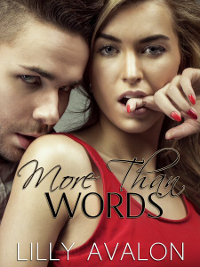 The idea for this post started when I read a review for one of my books. The reviewer said it was weird to her when I used a certain phrase to describe a part of the male body. My first thought was, “Wait…I wrote that?” I immediately opened the document to search for this phrase I supposedly used. Turns out, I didn’t write that phrase after all. I let out a relieved sigh because, well, let’s face it: The wording you use can either make or break the story.
The idea for this post started when I read a review for one of my books. The reviewer said it was weird to her when I used a certain phrase to describe a part of the male body. My first thought was, “Wait…I wrote that?” I immediately opened the document to search for this phrase I supposedly used. Turns out, I didn’t write that phrase after all. I let out a relieved sigh because, well, let’s face it: The wording you use can either make or break the story.
As a writer, you develop a sense of the kind of wording a book in your genre requires. You adjust as you write the story, learning along the way how it needs to flow to be believable. Wording is key to elicit the kind of reaction you’re going for. The wrong word or sentence can throw an entire scene off balance, taking the reader out of the story.
As an erotica writer, this can be even more important. There are different levels of erotica–from the light and sweet to the dark and heavy. The words you choose for a lighter story might not work for a darker one, and vice versa. If it doesn’t feel like it belongs, the reader is less likely to be invested in the story.
Let’s go back to where this all started. There are a lot of colorful phrases that can be used to describe male and female anatomy. Some work, some don’t. I’m not going to provide you with a list to go by, because most of it is personal preference. It’s all based on reader reaction. When you’re reading a book, what wording takes you out of a story? Is it a certain adjective or noun that throws you off? Be sure to avoid it when you write then.
Also, pay attention to your readers. Have they made comments about the words you use? Do they giggle, roll their eyes, or cringe over your choice phrases? You may need to find a way to reword it. Not that you have to completely change your style of writing, just that you need to be in tune with your audience. Even if a reader didn’t enjoy a particular book of yours, they may be more inclined to read your future work if your way of wording and your writing style hooks them.
What it really comes down to is figuring out what works for you. Great writers are constantly adapting over the years to make their work the best it can be. Be willing to grow as a writer by expanding your vocabulary and technique. As time goes on, the wording will come out naturally. Your readers will notice and so will you. One of my beta readers told me that she could see how much better my writing has gotten over the course of only two months. Let me tell you, it felt amazing to hear that. So, allow yourself room to grow as a writer. You’ll see the difference before you know it.